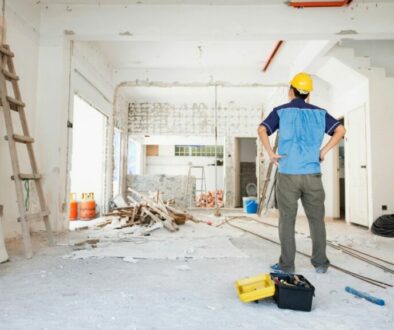Home Inspector Exam
For those who are passionate about real estate and home construction, becoming a home inspector can be an incredibly rewarding career path. Not only does this profession make a significant difference for homebuyers and sellers, but it also requires a thorough understanding of building systems, inspection techniques, and safety regulations. One of the most critical aspects of starting a career as a home inspector is passing the Home Inspector Exam. In this article, we’ll explore everything you need to know about preparing for and taking this exam, as well as building a successful career in home inspection.
Understanding the Home Inspector Exam
Purpose of the Exam
The Home Inspector Exam is a crucial step towards becoming a licensed home inspector. The exam measures a candidate’s knowledge of building systems and inspection techniques, as well as their ability to interpret regulations and professional standards of practice. This ensures that future home inspectors have the appropriate level of expertise to perform thorough and accurate inspections, promoting safety and efficiency in the construction industry.
Home inspectors play a vital role in the home buying process. They are responsible for examining a property and identifying any potential issues or hazards that may impact the safety, comfort, or value of the home. A thorough home inspection can help buyers make informed decisions and negotiate fair prices with sellers.
Exam Format and Structure
The Home Inspector Exam is a challenging test that requires candidates to demonstrate their knowledge and skills in a variety of areas. The exam consists of multiple-choice questions and is administered on a computer. The test is timed and typically takes between 3 to 4 hours to complete.
Candidates are required to answer questions in several different knowledge areas, including but not limited to, structural components, electrical systems, heating and cooling systems, plumbing systems, and roofing systems. These areas are all critical components of a home, and it is essential that home inspectors have a comprehensive understanding of each one.
Eligibility Requirements
Before taking the Home Inspector Exam, candidates must meet certain eligibility requirements. These requirements vary depending on the state in which the candidate wishes to become licensed. For example, some states may require a certain amount of experience in either home inspection or construction, while others may require a specific educational background or certification.
In addition to meeting the initial eligibility requirements, home inspectors must also complete continuing education throughout their career to maintain their license. This ensures that they stay up-to-date with the latest industry standards and regulations, and continue to provide high-quality inspections to their clients.
Overall, the Home Inspector Exam is a critical step towards becoming a licensed home inspector. By measuring a candidate’s knowledge and skills in a variety of areas, the exam helps ensure that home inspectors have the expertise needed to perform thorough and accurate inspections, promoting safety and efficiency in the construction industry.
Preparing for the Home Inspector Exam
Are you interested in becoming a home inspector? If so, you will need to pass the Home Inspector Exam. This exam is designed to test your knowledge of building codes, construction techniques, and home inspection procedures. In order to succeed on the exam, it’s important to prepare thoroughly. Here are some tips for preparing for the Home Inspector Exam.
Study Materials and Resources
One of the first steps in preparing for the Home Inspector Exam is to gather study materials and resources. There are many different types of study materials available, including textbooks, study guides, online resources, and practice exams. It’s important to choose materials that are up-to-date and relevant to the exam content. You can also find courses at local trade schools or online learning platforms that offer a comprehensive review of the exam content.
When selecting study materials, it’s important to consider your learning style. Some people prefer to learn by reading, while others prefer to learn by watching videos or listening to audio recordings. Choose materials that align with your preferred learning style to maximize your chances of success on the exam.
Developing a Study Plan
Developing a study plan is essential for success on the Home Inspector Exam. A study plan will help you stay organized and focused on your goals. When developing a study plan, it’s important to prioritize topics in which you feel less confident. Allocate more time towards studying those areas to ensure that you have a solid understanding of the material.
Scheduling regular study sessions with breaks in between will help make the material easier to retain. It’s also important to set realistic goals and track progress throughout the study period. By tracking your progress, you can identify areas where you need to focus more attention.
Tips for Effective Studying
Effective studying involves more than simply reading through study materials. To truly understand the material, candidates should actively engage with it. Here are some tips for effective studying:
- Take notes: Write down important concepts and terms as you read through study materials.
- Form study groups: Join a study group or form one with other candidates. Discussing the material with others can help you gain a deeper understanding of it.
- Practice problem-solving: Take practice exams and work through problems to apply your knowledge.
- Get enough rest and exercise: Getting enough rest and exercise throughout the study period can help optimize cognitive performance.
By following these tips, you can maximize your chances of success on the Home Inspector Exam. Good luck!
Key Areas of Knowledge for the Exam
Home inspectors play a crucial role in the real estate industry, providing a comprehensive evaluation of a property’s condition to potential buyers. To become a certified home inspector, candidates must demonstrate a thorough understanding of several key areas of knowledge.
Building Systems and Components
One of the primary responsibilities of a home inspector is to evaluate a property’s building systems and components. This includes electrical systems, heating and cooling systems, plumbing systems, and roofing systems. Candidates should have a deep understanding of each of these systems and their individual components, as well as how they interact with each other to affect the overall safety and efficiency of a home.
For example, a candidate should know that a home’s electrical system includes the main service panel, branch circuits, and outlets, and that electrical problems can range from minor issues like loose connections to serious safety hazards like overloaded circuits. They should also be familiar with common heating and cooling systems, such as furnaces, boilers, and air conditioning units, and how to assess their condition and efficiency.
Inspection Techniques and Procedures
Home inspectors must also be skilled in using various inspection techniques and procedures to assess the condition of a property’s components and systems. This includes visual inspections, testing, and data collection processes. Candidates should have a deep understanding of each of these processes, as well as how to interpret and communicate their findings to clients.
For example, a candidate should know that a visual inspection involves a thorough examination of a component or system to identify any visible defects or damage. They should also be familiar with testing procedures, such as using a moisture meter to assess the condition of a home’s roof or walls. Finally, candidates should know how to collect and analyze data from these inspections, and how to effectively communicate their findings to clients.
Safety and Health Considerations
Safety and health considerations are paramount in home inspection. Candidates should be aware of common safety hazards in residential construction, such as asbestos and lead paint, as well as best practices for handling these hazards. It’s also important for candidates to know how to identify and address health concerns related to indoor air quality and mold growth.
For example, a candidate should know that asbestos was commonly used in building materials until the 1980s and can cause serious health problems if it is disturbed or damaged. They should also be familiar with lead paint hazards, which are especially common in older homes. Candidates should also know how to identify and address indoor air quality concerns, such as high levels of radon gas or mold growth.
Professional Ethics and Standards of Practice
Finally, candidates should have a strong understanding of the professional ethics and standards of practice that govern the home inspection industry. This includes knowledge of liability and risk management, as well as how to maintain accurate and thorough documentation throughout the inspection process.
For example, a candidate should know that home inspectors have a duty to their clients to provide an honest and objective evaluation of a property’s condition. They should also be familiar with liability and risk management strategies, such as carrying adequate insurance coverage and using contracts to clearly define their responsibilities and limitations. Finally, candidates should know how to maintain accurate and thorough documentation throughout the inspection process, including detailed reports and photographs of any defects or damage.
Taking the Home Inspector Exam
Are you considering becoming a home inspector? Taking the home inspector exam is an important step in obtaining your certification. Here are some tips and strategies to help you succeed on exam day.
Exam Day Tips and Strategies
It’s important to be well-rested and prepared on the day of the exam. Getting a good night’s sleep and eating a healthy breakfast can help you feel energized and focused. Candidates should arrive early to allow enough time to navigate to the testing center and check in. This will help you avoid the stress of rushing and ensure that you are ready to begin the exam on time. In addition, bringing a valid form of identification and any necessary testing materials will help you avoid any last-minute complications.
Before beginning the exam, candidates should read through the instructions carefully and allocate their time accordingly. This will help you understand what is expected of you and ensure that you have enough time to answer all the questions.
Navigating the Exam Interface
The exam interface can be confusing, but taking advantage of available features can help you navigate it more easily. Marking questions for review and highlighting important information can help you keep track of what you need to focus on. It’s important to read each question thoroughly and consider all possible answers before making a selection. This will help you avoid making careless mistakes.
Candidates should also pace themselves to ensure that they are able to answer all the questions within the allocated time period. If you find yourself struggling with a particular question, don’t be afraid to skip it and come back to it later. This will help you avoid wasting time on one question and ensure that you have enough time to answer all the questions.
Managing Time and Stress During the Exam
As with any exam, managing time and stress levels is essential for success. Candidates should take breaks as needed to maintain focus and stay calm throughout the exam. Taking a few deep breaths or stretching can help you relax and refocus. It’s also helpful to practice relaxation techniques such as deep breathing or visualization to reduce anxiety.
Remember, the home inspector exam is just one step in your journey to becoming a certified home inspector. With the right preparation and mindset, you can pass the exam and move on to a rewarding career in home inspection.
After the Home Inspector Exam
Understanding Your Exam Results
Once the exam is complete, candidates will receive their results. It’s important to understand how the exam is scored and what the passing requirements are for their state. Candidates who do not pass the exam should take note of areas in which they struggled and prioritize those areas in their future study plans.
Understanding your exam results is crucial for your future success as a home inspector. It can help you identify areas where you need to improve your knowledge and skills. For example, if you struggled with electrical systems on the exam, you may want to focus your future study plans on that area. By doing so, you can increase your chances of passing the exam on your next attempt.
Retaking the Exam if Necessary
If a candidate is unsuccessful on their first attempt at the Home Inspector Exam, they may retake the exam after a certain waiting period. Candidates should review their previous study plan and make adjustments as necessary to ensure the best possible outcome on their retake.
Retaking the exam can be a daunting prospect, but it’s important to remember that many successful home inspectors have had to retake the exam at least once. Use your previous exam experience to identify areas where you need to improve and adjust your study plan accordingly. Don’t be afraid to seek additional resources, such as study groups or tutoring, to help you prepare for your retake.
Continuing Education and Professional Development
After passing the exam and obtaining licensure, candidates should prioritize continuing education and professional development. This may include attending industry conferences or trade shows, subscribing to industry publications, and pursuing advanced certifications in specialized areas of home inspection.
Continuing education and professional development are essential for staying current in the home inspection industry. Technology and building codes are constantly evolving, and it’s important to stay up-to-date on the latest developments. Attending industry conferences and trade shows can provide valuable networking opportunities and access to new tools and technologies. Pursuing advanced certifications can also help you stand out in a crowded market and expand your knowledge in specialized areas of home inspection.
Building a Successful Home Inspection Career
Home inspection is a crucial aspect of the real estate industry, and it requires a high level of expertise and knowledge. Building a successful career in home inspection requires more than just technical skills. It also involves mastering the art of networking, marketing, and staying up-to-date with industry trends and regulations.
Networking and Professional Associations
Networking is a critical component of any successful career, and home inspection is no exception. As a home inspector, you need to create a strong network of professional contacts to help you find clients, learn about new opportunities, and stay up-to-date with industry trends. Joining professional associations in the field is an excellent way to build your network and gain access to valuable resources and support.
Professional associations such as the American Society of Home Inspectors (ASHI) and the International Association of Certified Home Inspectors (InterNACHI) offer a range of benefits to their members. These benefits include access to educational resources, networking opportunities, and professional development programs. By joining these associations, you can connect with other professionals in the field, learn from their experiences, and gain valuable insights into the industry.
Marketing Your Home Inspection Services
Marketing is another critical aspect of building a successful home inspection career. To attract clients and grow your business, you need to effectively market your home inspection services. This may involve creating a professional website that showcases your expertise and services. You can also offer promotions or discounts to entice potential clients to choose your services over your competitors. Leveraging social media platforms such as Facebook, Twitter, and LinkedIn can also help you reach a wider audience and promote your services to potential clients.
Staying Current with Industry Trends and Regulations
Staying up-to-date with industry trends and regulations is essential for home inspectors. The real estate industry is constantly evolving, and new regulations and standards are regularly introduced. As a home inspector, it’s crucial to stay informed about these changes to ensure that you’re providing your clients with the most accurate and up-to-date information.
One way to stay current with industry trends and regulations is to regularly review industry publications such as the Journal of Light Construction and the Home Inspector Magazine. Attending industry events such as conferences and seminars can also help you stay informed about the latest developments in the field. Pursuing continuing education opportunities is also critical for maintaining professional licensure and staying current with industry best practices.
Building a successful home inspection career requires a combination of technical expertise, business acumen, and networking skills. By joining professional associations, effectively marketing your services, and staying up-to-date with industry trends and regulations, you can build a thriving career in this exciting and rewarding field.
Passing the Home Inspector Exam is a critical step in starting a successful home inspection career. With careful preparation and study, candidates can become knowledgeable in building systems and inspection techniques and successfully navigate the exam. By prioritizing networking, continuing education, and marketing strategies, they can build a rewarding and fulfilling career as a home inspector.




